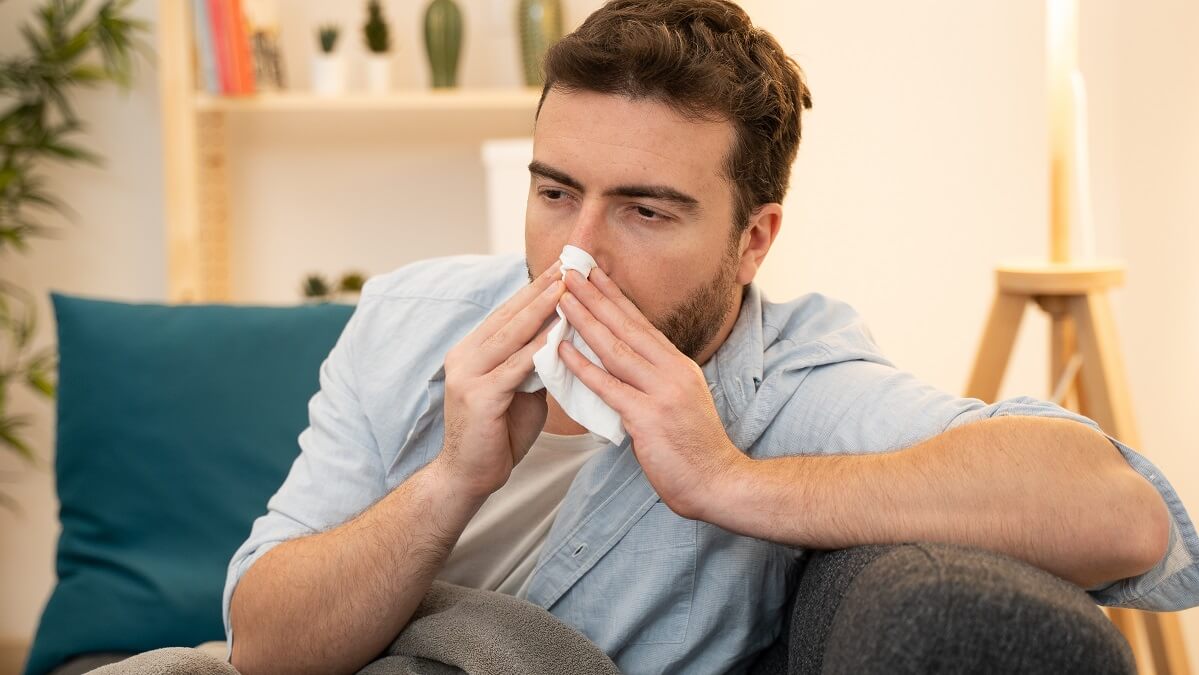Is COVID in more of a hurry than it used to be? According to some recent data analysis, the answer is ‘yes’. And what does that mean anyway?
That question can be interpreted in two ways, and this article will attempt to answer both, as COVID transmission continues across the world without the fanfare that once accompanied it.
COVID, and the pandemic in general, is no longer a topic of daily discussion for most of us. Unless something dramatic happens, it’s a subject that doesn’t generate clicks like it used to.
Lockdowns and restrictions are now little more than a distant memory for most. There’s less of a practical need for us to bring up COVID transmission in daily conversation.
Despite all of that, COVID remains very much part of our world. We might not discuss it – or even think about it – unless we are directly affected, but perhaps we should.
COVID in a hurry
Is there now a shorter period between exposure to the virus and a positive test for infection? A peer-reviewed analysis suggests the answer is ‘yes’.
A shorter period between exposure to the virus and a positive test for infection points to a shorter incubation period. And a shorter incubation period can mean faster COVID transmission.
The evolution of COVID transmission
While the effects of lockdowns and restrictions might be fading from memory, you probably still remember that COVID had variants.
We began with Alpha, and went through a number of Greek letters assigned to those variants as COVID evolved. Delta and Omicron became part of the vernacular all over the world.
Here’s the interesting thing about those variants, as revealed in the review: “The incubation periods of COVID-19 caused by the Alpha, Beta, Delta, and Omicron variants were 5.00, 4.50, 4.41, and 3.42 days respectively.” Those numbers were also backed up by another study conducted earlier this year.
You don’t have to be a microbiologist or mathematician to see a clear trend there.
What this means is that when you become symptomatic faster, you have more of the virus circulating in your system. And that, in turn, makes you more likely to spread the sickness to someone else.
David Souleles, campus public health response team director at the University of California, Irvine, reduced it to simple terms.
“Coughing and sneezing accelerate the ability of the virus to move from person to person,” he said.
Is this really important? It could be. Understanding how COVID transmission has changed means we can make more informed decisions if we, or someone we’ve had contact with, is infected.
And we shouldn’t forget that for some people, those who are older and/or health-compromised, COVID can be a death sentence.
Dr Gregory Poland, professor of medicine and infectious diseases at Mayo Clinic, provides a sobering perspective to COVID transmission.
If Omicron had been the original strain in 2020, he said the numbers would likely have been very different. “We wouldn’t be talking about 1 out of 308 Americans being dead, we would probably be talking about 1 out of 200.”
Does the topic of COVID transmission come into your mind often these days? Or have you taken a more relaxed view recently? Let us know in the comments section below.
Also read: New COVID variant lands in Australia, so do you need to get a booster?
Disclaimer: This article contains general information about health issues and is not advice. For health advice, consult your medical practitioner.


I have maintained my vaccinations, and have recently received my sixth vaccination. I think we are more relaxed, part of that are better anti viral treatments and the virus seemingly less severe.
We need to remain vigilant though. I am not a virologist or immunologist. New strains continue to evolve, ai hope a new more deadly one doesn’t develop.
I continue to wear my mask in enclosed areas .
Too many people go shopping etc even if they are infected.
Annoyingly, I’ll think I’ll have to wear my mask and stop travel till there’s a cure, I have too many chronic illnesses to risk catching it! I will probably go for my next vaccination soon, which will be my sixth.
I’ve had my sixth jab.
Don’t forget your flu shot .
Although they say you can have both injections together, I,ve had mine a fortnight apart, which I believe to be more sensible.
You may be interested in the stats and info about Covid in the Classical Forum which has a weekly update.
https://forums.yourlifechoices.com.au/the_meeting_place/post/virus-from-china
NSW HEALTH
“Changes to rapid antigen testing are coming. From 1 October 2023, you will no longer be able to:
• register a positive rapid antigen test (RAT) result with Service NSW. This is because the Service NSW RAT portal will close on this date.
• collect free RATs at Service NSW locations and recovery centres.”
NOW THAT SHOULD BRING DOWN THE NSW covid NUMBERS
– KNEW LABOUR GOV WOULD BE ABLE TO FIX IT